Funerals have been a fraught issue for funeral directors. From following new regulations to communicating the restrictions with grieving families and friends, it has proved a difficult navigation.
For the last few weeks, funerals across the country have been limited to only ten mourners. Social distancing measures have prevented couples from sitting next to and comforting one another during ceremonies, and religious rituals have had to shift entirely to accommodate safe and contactless burials. As restrictions are set to relax slightly across the country, The Feed talked to a series of funeral directors to see how they have coped with these radical changes
A complete change for Muslim burials
Davud Ugur Karadavut is a funeral director at the United Islamic Centre's Turkish Islamic Funeral Service in Sydney.
So far, he's officiated over 50 funerals since the coronavirus outbreak. Davud has seen first hand how the new rules have changed the face of Muslim funerals.
Before coronavirus, an Islamic funeral would be held at a mosque, with mourners, for the ritual funeral prayer, Janazah, then moved to the cemetery.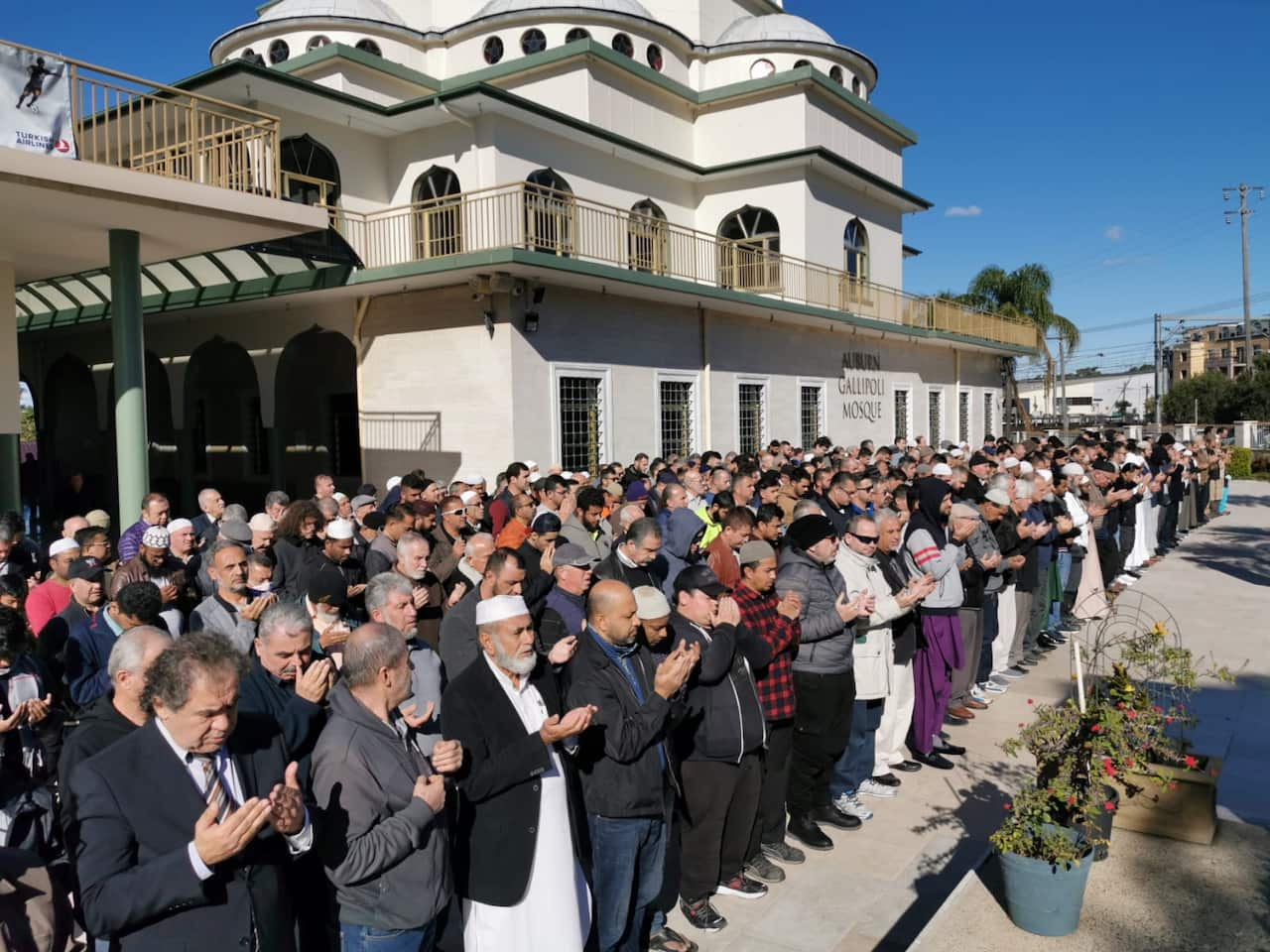 But with mosques closed, they've had to adapt, in a situation that is not always easy for those who have lost their loved ones. Last week, Davud officiated three of the funerals in just one day: in them, all of the funeral prayers were performed at the cemetery.
But with mosques closed, they've had to adapt, in a situation that is not always easy for those who have lost their loved ones. Last week, Davud officiated three of the funerals in just one day: in them, all of the funeral prayers were performed at the cemetery.

Janazah prayer in Auburn Gallipoli mosque prior to the coronavirus pandemic. Source: Supplied
"It's not what we are used to doing, being away from the mosque and some people are against praying at the cemetery," Davud told The Feed.
"Some believe that you should not pray at the cemetery. Because they think you are like praying with a dead body, and then it can be misunderstood that you are doing your prayers for the person that's laid in front of you [instead of God]."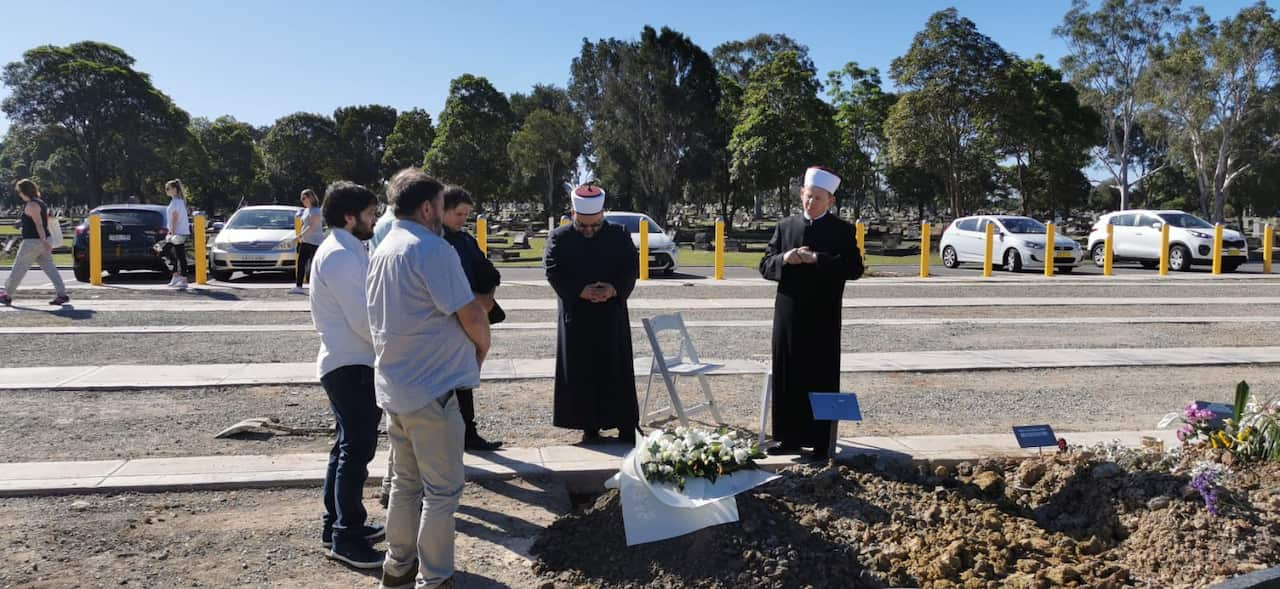 Along with the shift in location, a very specific challenge has been faced by Davud: removing traditional contact with the body after death. Islamic burials traditionally consist of a washing of the body of the deceased, immediately after the person has died. An Imam and his assistant perform a 'ghusl' washing to cleanse the body before burial, and requires the water to touch every point of the body.
Along with the shift in location, a very specific challenge has been faced by Davud: removing traditional contact with the body after death. Islamic burials traditionally consist of a washing of the body of the deceased, immediately after the person has died. An Imam and his assistant perform a 'ghusl' washing to cleanse the body before burial, and requires the water to touch every point of the body.

Muslim burial at a cemetery during the coronavirus. Source: Supplied
Read more:
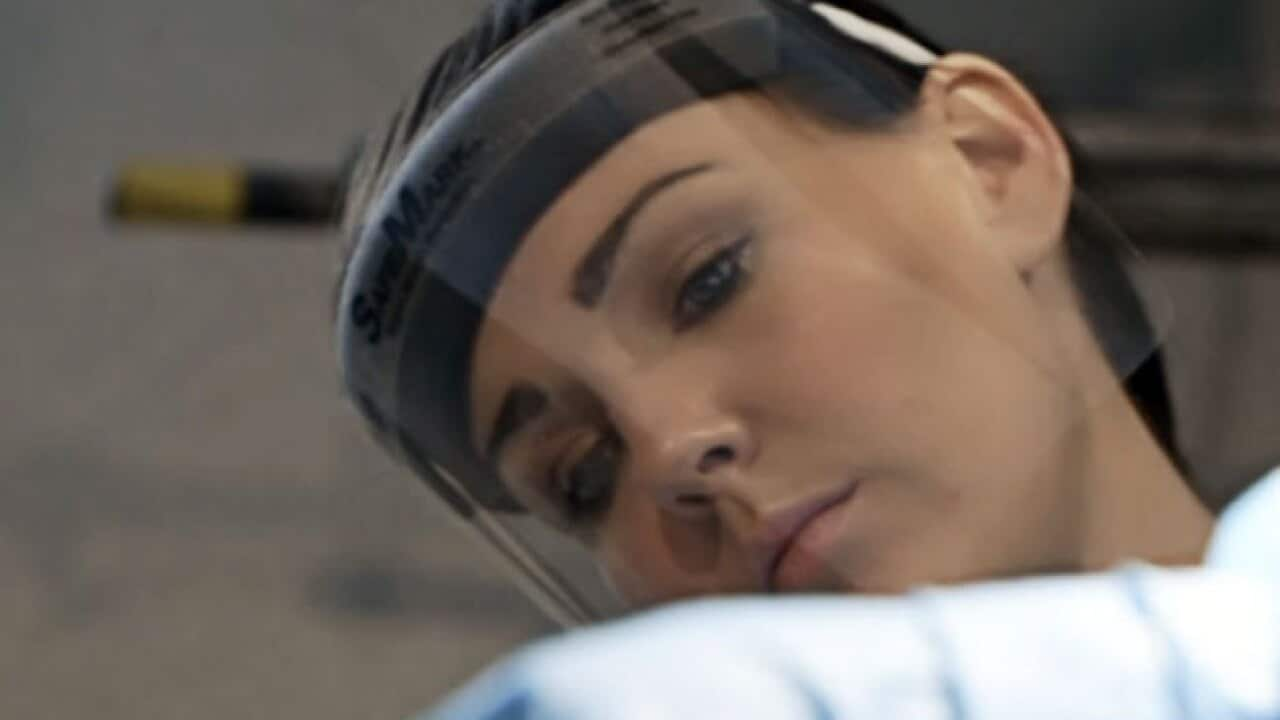
The Feed: Making dead bodies beautiful
In the early days of the pandemic, over 30 Muslim funeral directors from across Australia met over Zoom. In the meeting they agreed to handle COVID-19 cases without physical touching of the body.
"We will perform the symbolic washing which is called a tayammum on top of the bag and then do the wrapping. During this process no family members attend to maintain social distancing between the washers and the family members," Davud said.
If the case arises that they need to deal with a coronovirus-related death, an Imam and his assistant will wear protective gear during the symbolic washing. The body will be sealed in a leak proof body bag, before the deceased is shrouded in three layers.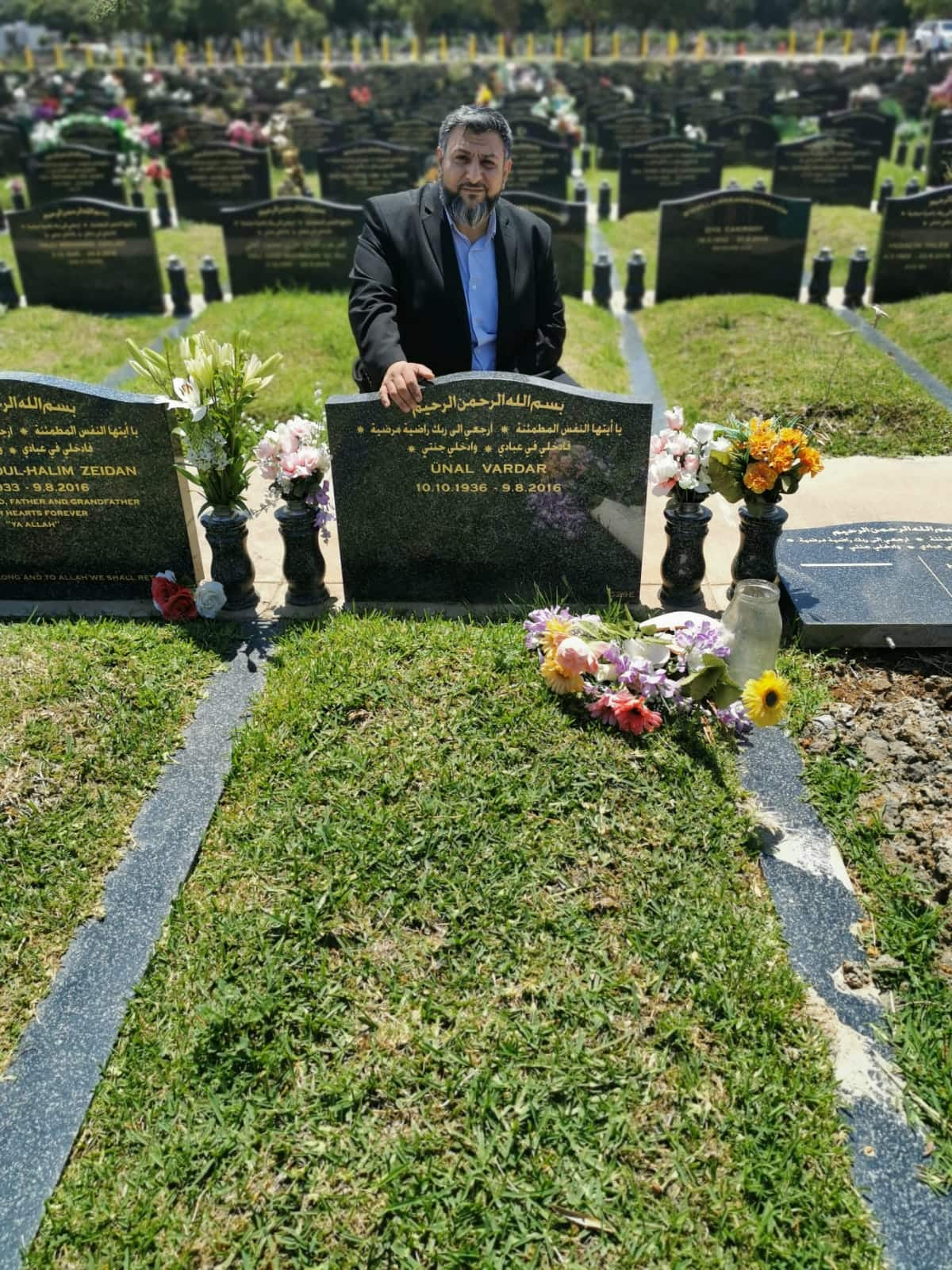 In non-coronavirus deaths, Davud put in place rules and regulations for his funeral parlour that no more than five people are allowed inside. Doors are closed as soon as the washing begins, and no one but the two washers are allowed in the washing room.
In non-coronavirus deaths, Davud put in place rules and regulations for his funeral parlour that no more than five people are allowed inside. Doors are closed as soon as the washing begins, and no one but the two washers are allowed in the washing room.

Davud sitting near a grave at a cemetery. Source: Supplied
"But in some very special cases our female washers, they allowed some sisters to go with the family members to help to wash the body," he said.
"I told the sister to put the appropriate gear on the mask and the goggles. And she screamed at me. She said, 'what are you talking about? She's my mom. I am not going to get dirty because of her washing.'
"I mean, it is hard. You have to be the bigger guy even though they scream at you, yelling at you. They are acting out of the ordinary."
"We can't do anything, and we try to tell the families."
Michelle Sneddon has been in the funeral industry for decades, working at Family Funeral Service in Sydney. She says the adjustment to the new way of conducting funerals is frustrating, with attendance numbers being the main cause of distress.
"[Families are] asking when will it be lifted? We can't do anything until the Department of Health notify us whether we can have more people at the funeral, or whether the total ban is lifted," Michelle told The Feed.
"We can't do anything, and we try to tell the families."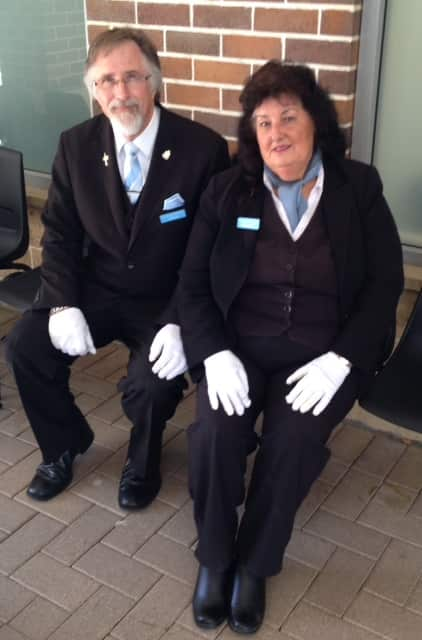 Michelle says she's felt like the bad guy enforcing the social-distancing restrictions during services, and that it's made her feel terrible because that's not why she went into the funeral industry. She remembers one incident with a client mourning the passing of the family patriarch.
Michelle says she's felt like the bad guy enforcing the social-distancing restrictions during services, and that it's made her feel terrible because that's not why she went into the funeral industry. She remembers one incident with a client mourning the passing of the family patriarch.

Michelle with her business partner Paul Grose before a funeral. Source: Supplied
"I feel bad. If I had my way I'd let them sit together, they are family," Michelle said.
"One of the gentlemen turned around when he was 1.5 meters from his wife, and he said you know I sleep with this lady? I thought you what he's right, he does sleep with her. Why can't he sit with her and mourn the death of her father?"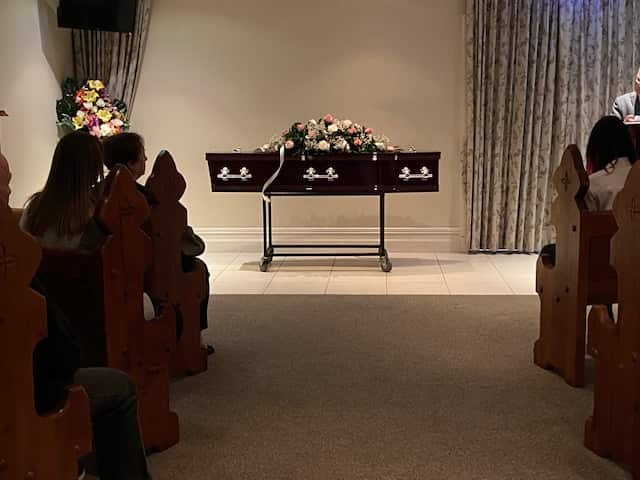 Some families are waiting until after the pandemic to bury their loved ones. The Family Funeral Service has been taking care of one family's young son in their funeral home. Michelle says it's difficult for the family because they want to have a large funeral to commemorate the life of their 29-year-old son.
Some families are waiting until after the pandemic to bury their loved ones. The Family Funeral Service has been taking care of one family's young son in their funeral home. Michelle says it's difficult for the family because they want to have a large funeral to commemorate the life of their 29-year-old son.

A funeral Michelle and Family Funeral Service officiated. Source: Supplied
"I've already had him in our care for a month, it's already been a month. How are they supposed to say goodbye? They want more than 10 people at the funeral. He's a young boy. And they can't say goodbye to him because of what's going on," she said.
"You only get one chance to say goodbye."
Finding new rituals in the time of coronavirus
Since 2013, Kimba Griffith has worked as a death doula, someone who assists in the dying process. In the midst of the pandemic she opened her Melbourne based funeral house The Last Hurrah.
She started the company with her business partner Nastassia Jones only three and half months ago, and is seeing more people looking to commemorate loved ones in a number of different ways during the pandemic.
“We've noticed that witness cremation has gone up. That's where you actually go to the crematorium and you view the coffin going into the retort,” Kimba told The Feed.
“It allows a really personal intimate ritual. But you can only take four people, so it's kind of what people are choosing to do.”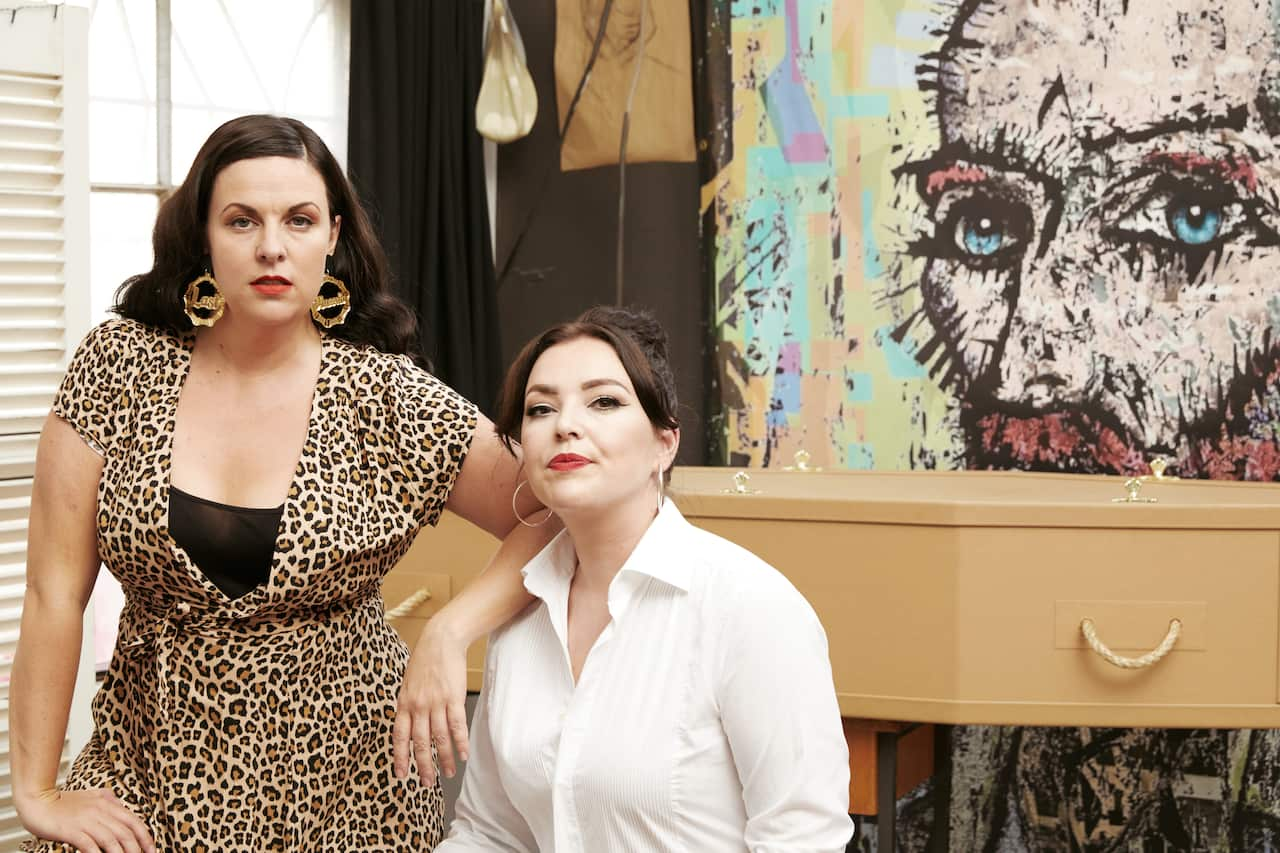 Last week, Kimba assisted a family whose elderly father passed away, with a home-based funeral. It’s a package her business has offered in the past, but in recent weeks it’s a choice some families have begun opting for.
Last week, Kimba assisted a family whose elderly father passed away, with a home-based funeral. It’s a package her business has offered in the past, but in recent weeks it’s a choice some families have begun opting for.

Kimba (on the left) with her business partner Nastassia Jones. Source: Steph Cammarano
“So just say they did die at home and there was an expected death. So they would stay there, we would either assist the family to wash and dress the person,” Kimba said.
“Then we have this really terrific device called a cooling bed, which is basically like a portable refrigeration unit. You just put that underneath the person and that will cool them to a temperature very similar to a cold room.
“So you can allow that person to remain with the family for a few days quite comfortably as long as you just keep an eye on them.”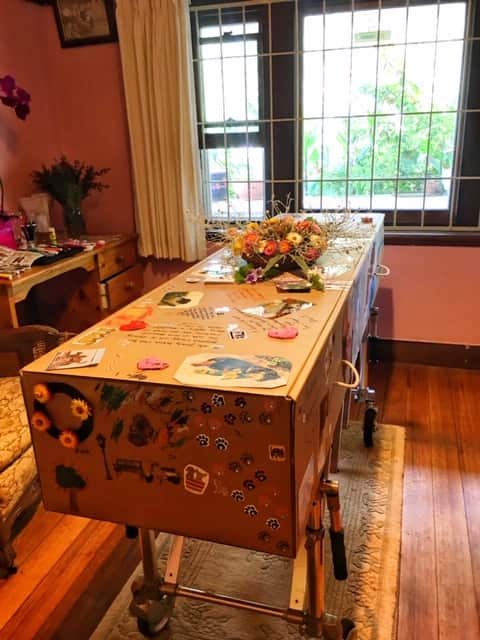 The Last Hurrah has also created a guide to assist families to have DIY funerals.
The Last Hurrah has also created a guide to assist families to have DIY funerals.

A coffin from a home funeral officiated by The Last Hurrah. Source: Phoebe Powell Photography
The key necessary ingredients to perform a DIY funeral are the same as any other funeral: you will need the legal paperwork, appropriate transport, a coffin and then there’s the ceremony. But Kimba says collecting the deceased loved one to bring home for a funeral might be difficult.
“It's not easy because institutions are not really used to it. So in the first instance, institutions might say, no. But as we say to families, it just depends how much you want this and how willing you are to sort of basically rock the boat,” she said.
“If they are at the coroners, it's not impossible, we have actually spoken to representatives from the coroners. And they have said, no, it is possible to come and get your own person.”
After the process of collecting the body from the coroners, there will need to be a vehicle that can respectfully transport the deceased.
“In terms of the law of it, there has to be an impermeable container that could be covered shroud, a cardboard box, a homemade coffin. There's plenty of ways you can do it,” she said.
“Then you've got to keep the person cooled. Now you can hire cooling beds, you can use dry ice or you can ring up an independent mortuary.”
Kimba says once all those difficult steps are taken the focus moves to the day. At that point, it’s about event management.
“And it can be really empowering for families even just to do that part themselves, if not anything else, you know.”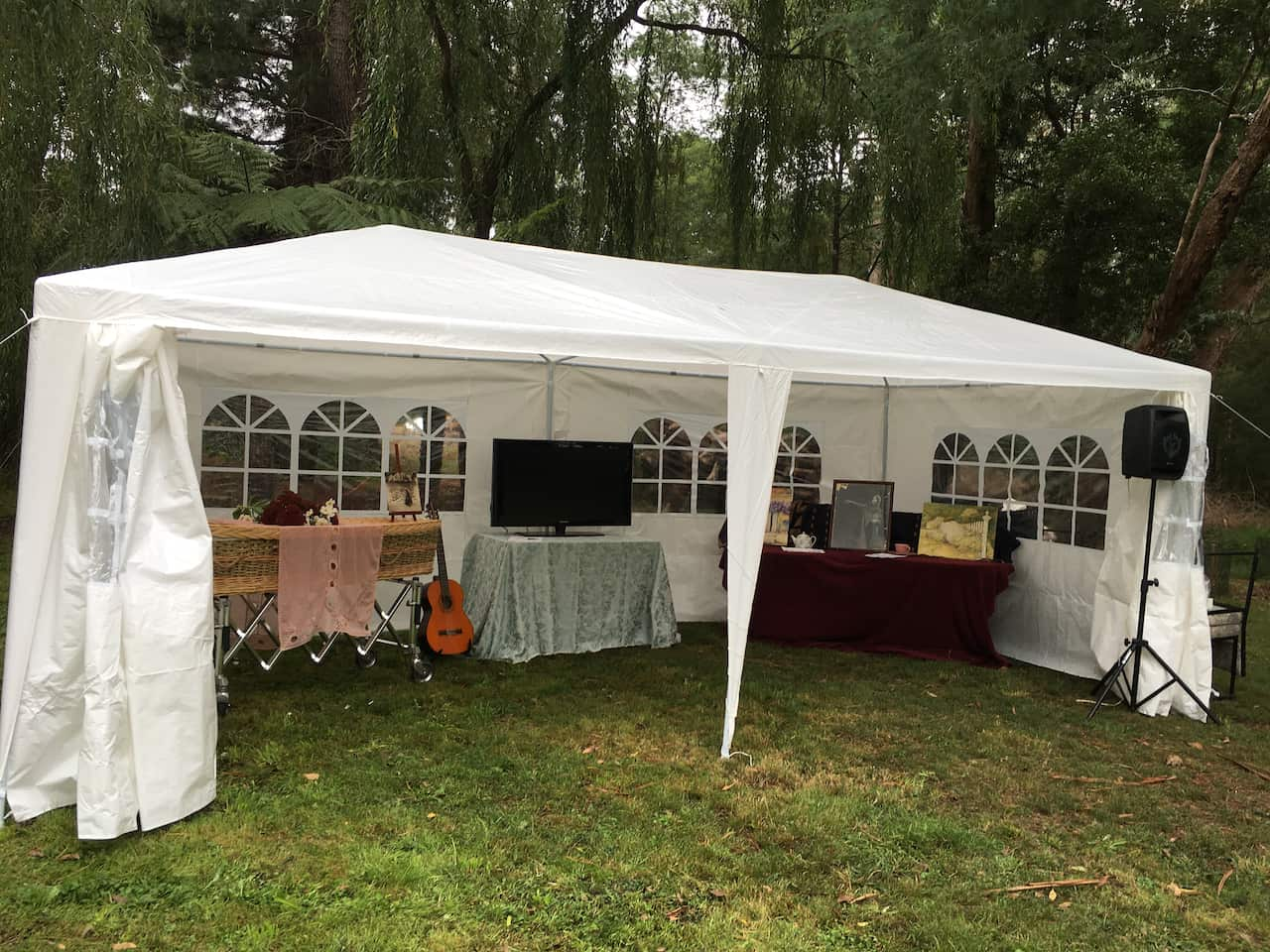

A marquee set-up for a outdoor funeral by The Last Hurrah. Source: Phoebe Powell Photography
A change on the horizon
While it’s been a challenging time for Davud, Michelle and Kimba, things are set to get a little easier. Last Friday, the federal government announced the new three steps program that will see restrictions of the shutdown ease from now until July. The current restriction limit of ten mourners at a funeral is set to be relaxed in “stage one”. Funerals will be extended to 20 mourners indoors or 30 if outdoors.
The current restriction limit of ten mourners at a funeral is set to be relaxed in “stage one”. Funerals will be extended to 20 mourners indoors or 30 if outdoors.

The federal government's three stage road-map out of coronavirus restrictions Source: Getty Images
In South Australia, stage one has already been initiated, and Victoria will implement the new rules on May 13. New South Wales and Queensland will put in place stage one on May 15, and Western Australia will on May 18.
There are no limits for funerals in the Northern Territory but mourners are expected to keep social distancing rules in mind.
People in Australia must stay at least 1.5 metres away from others. Check your state’s restrictions on gathering limits.
Testing for coronavirus is now widely available across Australia. If you are experiencing cold or flu symptoms, arrange a test by calling your doctor or contact the Coronavirus Health Information Hotline on 1800 020 080.
The federal government's coronavirus tracing app COVIDSafe is available for download from your phone's app store.
SBS is committed to informing Australia’s diverse communities about the latest COVID-19 developments. News and information is available in 63 languages at sbs.com.au/coronavirus.
Share
Through award winning storytelling, The Feed continues to break new ground with its compelling mix of current affairs, comedy, profiles and investigations. See Different. Know Better. Laugh Harder. Read more about The Feed
Have a story or comment? Contact Us





